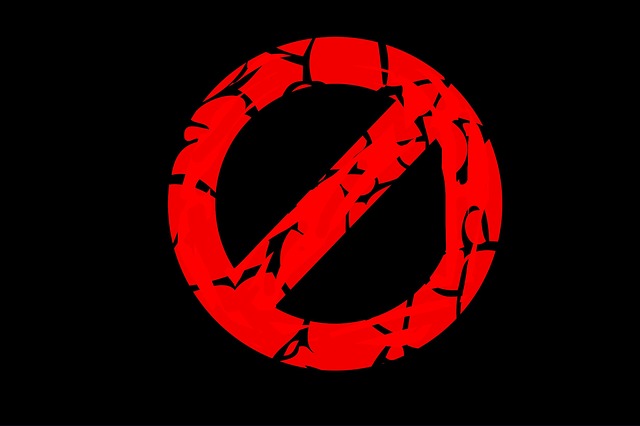If you think you only have rules on what not to eat at home, you are wrong. The United States has a vast list of foods that you cannot consume. Yes, you heard it right! The FDA and the USDA have put restrictions on certain foods to keep the consumers safe. These foods might be legal in other countries but not in the U.S.
Are you wondering what’s wrong with eating as you please? Some foods are considered a threat to consumers’ health as they might contain high levels of toxins or sugar. Another reason for foods being banned in the U.S. might be to stop animal cruelty and protect the endangered species of plants and animals.
If you are looking forward to tasting Jamaica’s national fruit, Sardinian cheese, some of Taiwan’s famous street snacks, the U.S. might disappoint you. One way and probably the only way you can get to taste them is to book your tickets to these countries or search for some black-market contacts.
Interested in reading more about foods and beverages that you can or cannot find in New York? Visit the Sip’n in the kitchen website to engage fun and informative discussions about food, recipes, and pairings, all about food 2020. If you have a career or hobby as a food blogger or questions about pairings, you will find the best tips and suggestions on food and drinks at https://sipninthekitchen.com/
Foods that are banned from the United States:
Here’s the list of banned foods from the U.S. and the reason why it is illegal to consume them.
- Ackee Fruit
It is the national fruit of Jamaica. A fully developed ackee fruit is bright red and contains three sections of flesh. The seeds are black and look glossy. It has been banned because the unripe portions of this fruit contain high levels of hypoglycin A, a toxin, resulting in low blood sugar levels in the body.
According to The Science Creative Quarterly, consuming the inedible parts of this fruit can cause Jamaican vomiting sickness. It can also cause other problems like dehydration, comas, and seizures. In 2005, the canned ackee fruit consumption was made legal if it meets the FDA’s highly strict regulations.
- Kinder surprise chocolate eggs
Around 80 years ago, the FDA had imposed a ban on all foods that contain non-nutritive objects embedded in them. Kinder surprise chocolate eggs are made from milk chocolate shell coated with white chocolate that contains a surprise toy inside it. Due to the toy’s non-edible nature, it is banned for sale in the U.S., considering them a choking hazard.
Although in 2008, a similar version of chocolate named Kinder Joy has been made available in the U.S. It is packed in such a way that the chocolate and the toy can be separated. The Wall Street Journal reported that before 2008, many people tried to import it, and the United States Customs and Border Protection seized around 160,000 kinder surprise eggs.
- Pig’s Blood Cake
In Taiwan it is one of the most famous street foods. As the name suggests, mixed rice and pig’s blood stuck on a popsicle stick, like ice cream. It looks similar to black pudding in terms of color. The USDA banned it because of the unsanitary methods of preparation. You might have to travel to Asia if you want to taste it.
- Horse Meat
The ban on horse meat is not because it is unhealthy and may contain toxins in it, but because it is illegal to slaughter horses in the U.S. Hence, it restricts horse meat consumption. The ban on slaughtering horses got renewed by President Donald Trump in 2018. However, it is not illegal to eat horse meat, but you cannot buy it in the U.S.
- Haggis
Haggis is a savory pudding originated from Scotland made of heart, lungs, and liver of sheep, oatmeal, spices, and raw beef fat, presented in the sheep’s stomach and served. You can’t consume this dish in the U.S. because the sale of sheep’s lungs was banned by the USDA around 47 years ago.
Since haggis is not haggis without sheep’s lungs, Scottish people residing in the U.S. cannot enjoy eating it.
- CazuMarzu cheese
It is a traditional sheep’s milk cheese from Sardinia, which contains a particular fly’s larvae. The larvae hatch and turn into maggots that eat through the cheese, which makes it softer. It is also called as rotten cheese because it is flooded with live maggots.
It was banned considering the consumers’ health conditions as it is unsafe to eat when the maggots in the cheese die. It has been traditionally consumed in Sardinia and is considered to be a delicacy there.
- Beluga Caviar
The U.S. Fish and Wildlife Services forbade the import and consumption of beluga products, including beluga caviar in 2005. Before the ban on this product, it was sold for $200 per ounce, being the highest prized caviar sold worldwide. The prohibition law was necessary to protect the Beluga sturgeon fish as it came into critically endangered species.
- Queen Conch
Another species that got banned due to over-fishing problems was the queen conch. It is a large sea-snail, also described as a large marine mollusk. It is six to nine inches in length and is found in the Caribbean Islands. It might not be illegal to consume in other countries and is a popular ingredient in the Caribbean and East Asian cuisine.
- The Original Four Loko
It was once very popular with the U.S. underage crowd as it was an energy drink that contained alcohol, taurine, guarana, a lot of caffeine, and flavors. It got forbidden due to the high content of alcohol, caffeine, and a lot of illegal, unethical, and unhealthy sugar for anyone who consumes it. The term four loko stands for the four ingredients.


